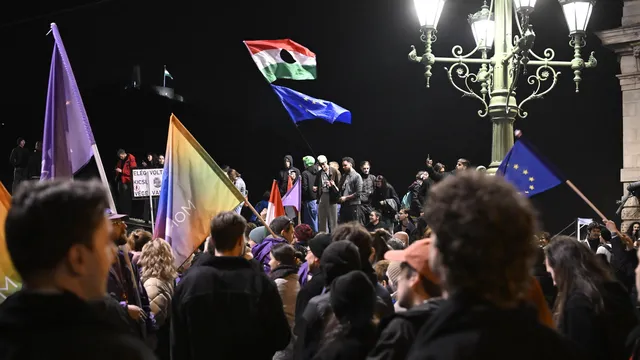A 2021 Hungarian law restricting access to LGBT content in the media and bookstores under the pretext of protecting minors “violates European Union law,” an advocate general at the European Court of Justice has ruled.
In her opinion, Advocate General Tamara Capeta is likely to give guidance to the court in Luxembourg, whose ruling is expected in a few weeks.
The Advocate General considers that the amendments made to Hungarian legislation in 2021 to limit children's exposure to these issues constitute “unjustified interference.”
“Hungary has not demonstrated that content depicting the everyday life of LGBT people is potentially harmful to the healthy development of minors,” the conclusion states, according to a statement from the Court quoted by AFP.
“By prohibiting or restricting access to LGBT content (acronym for lesbian, gay, bisexual, transgender, or intersex people, ed.), Hungary has violated EU law,” it added.
This dispute is one of the most significant human rights battles facing the nationalist government of Viktor Orbán against his EU partners.
A total of 16 EU member states, including France and Germany, as well as the European Parliament, have joined the lawsuit filed by the Commission. Brussels had announced that it would refer the matter to the EU Court of Justice in July 2022.
Since the Hungarian law came into force, audiovisual media have been banned from broadcasting LGBT content during the day, and shops have been banned from selling LGBT-themed products within 200 meters of churches and schools.
According to the non-governmental organization Reclaim, which defends these sexual minorities, some bookstores have been fined for offering graphic novels and other titles with LGBT characters in their children's sections.
In its conclusions, Capeta asks the EU Court to rule that EU law has been violated “on three different levels”: with regard to the e-commerce directive, the General Data Protection Regulation (GDPR), and finally the EU Charter of Fundamental Rights.
A ruling against Budapest in this case could result in a large fine and possibly the suspension of Hungary's voting rights in EU-27 meetings.
Last month, MEPs from the right, left, and center called on the Commission to freeze all funds earmarked for Hungary because of numerous texts considered repressive, including one aimed at banning the Pride march planned for the end of June in Budapest. This project is based in part on the 2021 law, which has been challenged before the EU Court of Justice. | BGNES

 Breaking news
Breaking news
 Europe
Europe
 Bulgaria
Bulgaria







